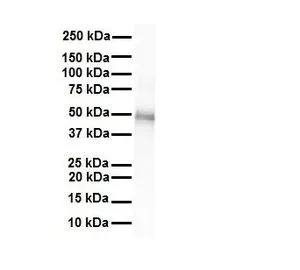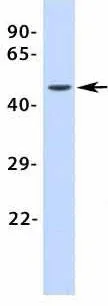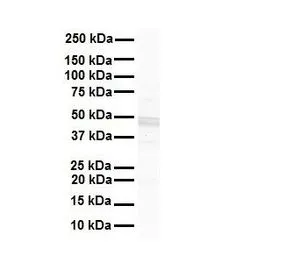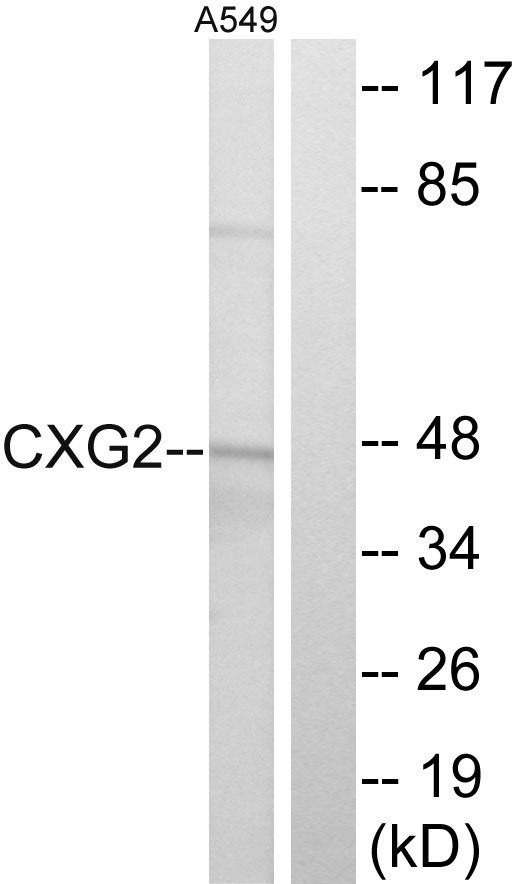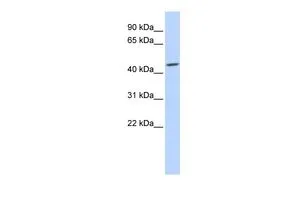
WB analysis of MCF-7 cells using GTX47484 GJC2 antibody at 0.2-1μg/ml.
GJC2 antibody, Internal
GTX47484
ApplicationsWestern Blot, ImmunoHistoChemistry, ImmunoHistoChemistry Paraffin
Product group Antibodies
ReactivityHuman
TargetGJC2
Overview
- SupplierGeneTex
- Product NameGJC2 antibody, Internal
- Delivery Days Customer9
- Application Supplier NoteWB: 0.2-2.5 ug/ml. IHC-P: 2-10 ug/ml. *Optimal dilutions/concentrations should be determined by the researcher.Not tested in other applications.
- ApplicationsWestern Blot, ImmunoHistoChemistry, ImmunoHistoChemistry Paraffin
- CertificationResearch Use Only
- ClonalityPolyclonal
- Concentration0.5-1 mg/ml
- ConjugateUnconjugated
- Gene ID57165
- Target nameGJC2
- Target descriptiongap junction protein gamma 2
- Target synonymsCX46.6, Cx47, GJA12, HLD2, LMPH1C, LMPHM3, PMLDAR, SPG44, gap junction gamma-2 protein, connexin-46.6, connexin-47, gap junction alpha-12 protein, gap junction protein, gamma 2, 47kDa
- HostRabbit
- IsotypeIgG
- Protein IDQ5T442
- Protein NameGap junction gamma-2 protein
- Scientific DescriptionThis gene encodes a gap junction protein. Gap junction proteins are members of a large family of homologous connexins and comprise 4 transmembrane, 2 extracellular, and 3 cytoplasmic domains. This gene plays a key role in central myelination and is involved in peripheral myelination in humans. Defects in this gene are the cause of autosomal recessive Pelizaeus-Merzbacher-like disease-1. [provided by RefSeq, Jul 2008]
- ReactivityHuman
- Storage Instruction-20°C or -80°C,2°C to 8°C
- UNSPSC41116161


